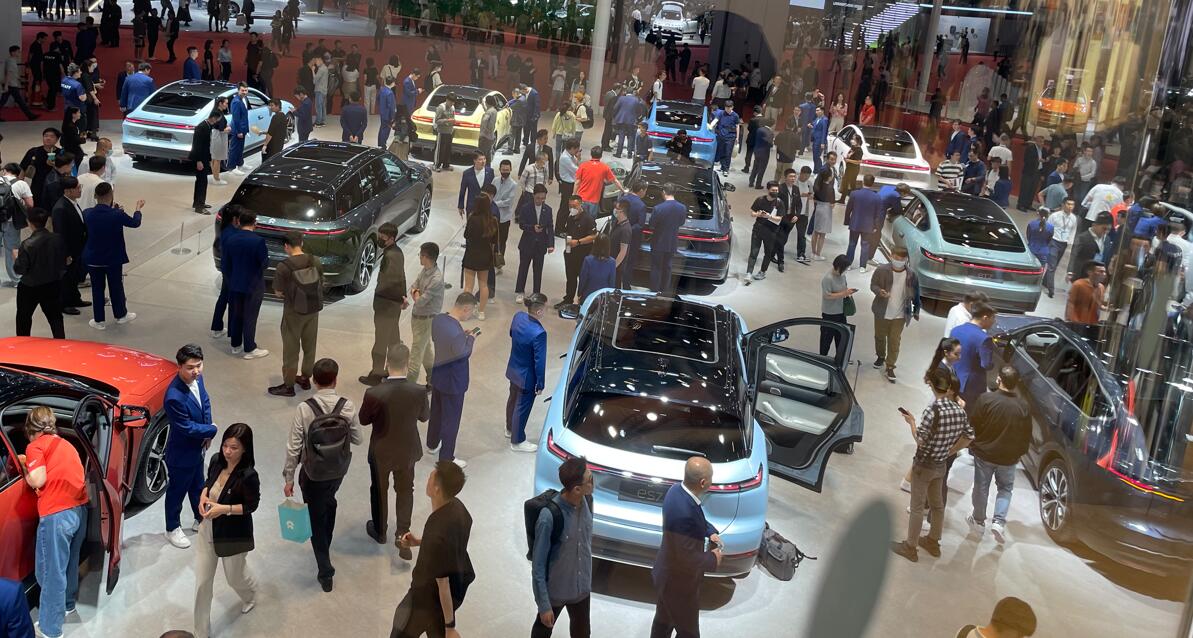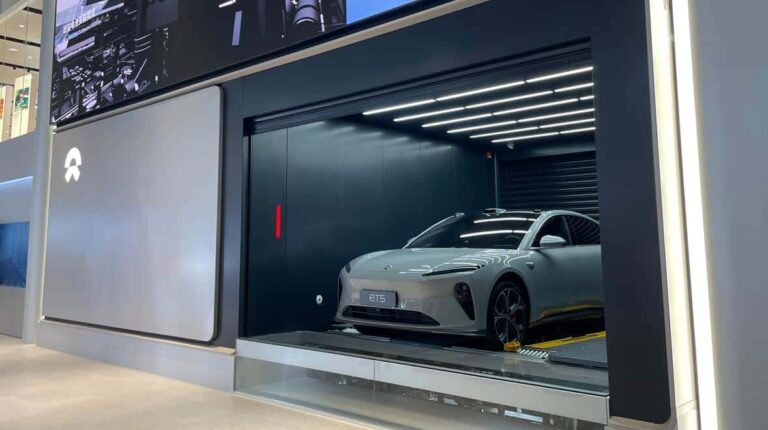Update: Adjusted the headline to be more accurate.
China will still offer NEV purchase tax breaks from 2024 to 2027, but the intensity will diminish in steps.
(Image credit: CnEVPost)
China today released details of its policy to extend the purchase tax exemption for new energy vehicles (NEVs), clarifying the timetable for the policy's withdrawal in the coming years.
China will exempt the purchase tax on NEVs with a purchase date between January 1, 2024, and December 31, 2025, but the tax exemption will not exceed RMB 30,000 yuan ($4,170) per passenger vehicle, according to an announcement issued today by the Ministry of Finance.
For NEVs with a purchase date between January 1, 2026 and December 31, 2027, the vehicle purchase tax will be levied at half the normal rate, of which, the tax reduction for each new energy passenger vehicle will not exceed RMB 15,000.
Such vehicles consist of pure electric vehicles, fuel cell vehicles, and plug-in hybrid vehicles that include extended-range electric vehicles, according to the announcement.
New energy passenger vehicles are NEVs designed, manufactured and technically characterized primarily for the transport of passengers and their accompanied luggage, and up to nine seats including the driver's seat, the announcement said.
In China, the standard vehicle purchase tax is 10 percent, which is currently faced by conventional internal combustion engine (ICE) vehicles. China had halved the purchase tax on mainstream ICE vehicles from June to December of last year, and that policy was not renewed when it expired at the end of last year.
To support the development of energy-efficient vehicles, China first began exempting NEVs from purchase taxes in 2014.
The policy originally expired at the end of 2017, but was extended until the end of 2020 before it expired. In March 2020, China extended the policy again until the end of 2022.
On September 26, 2022, China announced that the purchase tax exemption for NEVs would continue until the end of 2023.
It is worth noting that the latest policy released today continues to provide additional support for models that support battery swap.
When consumers purchase a NEV, the taxable price is the price of the vehicle body if the invoice for the car and battery are separate.
For models that do not support battery swap, they will not be able to reduce the taxable amount by selling the battery separately.
Previously, some car companies allowed consumers to take out separate loans for the vehicle body and battery, even if their vehicles did not physically support battery swap, to lower the barrier to purchase.
This business model trick will not allow their vehicles to enjoy a lower taxable price going forward.
NEVs that support battery swap should meet the relevant technical standards and requirements, and NEV makers should be able to provide battery swap services for users on their own, or be able to entrust a third party with that service, according to the announcement today.
( $1 =RMB 7.1935)

